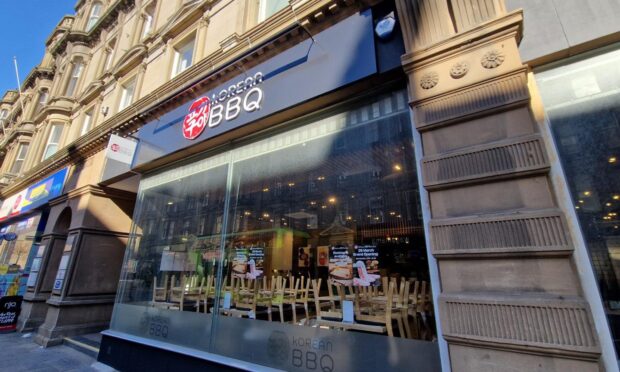Suzanne Thomson FCSI, investment manager, assistant director at RBC Brewin Dolphin, outlines these mistakes:
Everyone makes mistakes, but investing mistakes can be costly. A single mis-step can set you back thousands of pounds, and the consequences may not be immediately apparent. With this in mind, here are ten of the most common investment mistakes to avoid.
-
Some Courier online content is funded by outside parties. The revenue from this helps to sustain our independent news gathering. You will always know if you are reading paid-for material as it will be clearly labelled as “Partnership” on the site and on social media channels,
This can take two different forms.
“Presented by”
This means the content has been paid for and produced by the named advertiser.
“In partnership with”
This means the content has been paid for and approved by the named advertiser but written and edited by our own commercial content team.
1. Ignoring inflation
You may prefer keeping all your money in a savings account as investing tends to involve more risk than holding cash. However, if the interest rate on your savings is below inflation, its ‘real’ value will gradually erode over time. While you can mitigate the erosive impact of inflation, history shows us that, over long periods, the stock market tends to outperform cash.
2. Failing to build a ‘rainy day’ fund
It’s generally wise to have around six months’ worth of essential expenditure in an easy access account to pay for emergencies, for example if your boiler breaks down or you receive a large, unexpected bill. This will help you avoid resorting to loans or selling investments that might have fallen in value.
3. Forgetting your tax allowances
Income and gains on investments inside an Individual Savings Account (ISA), as well as withdrawals, are completely tax free. Pensions offer 20% tax relief on personal contributions, meaning a £100 contribution only costs you £80. Higher rate and additional rate taxpayers can claim further tax relief of up to 20% or 25%, respectively.
4. Failing to diversify
Spreading your money across different asset classes, sectors, and regions, can help minimise your losses when one type of investment underperforms. A financial adviser can help you get started on creating a diversified investment portfolio.
5. Taking a short-term view
The stock market can be volatile, with share prices moving up and down from one week to the next. This is why you should approach investing with a long-term view and invest for at least five years, ideally longer. Investing over the long term gives your money the chance to recover from stock market downturns and grow in value over time.
6. Making rash decisions
When stock markets tumble, it’s easy to panic. But knee-jerk reactions could leave you in a worse place financially. Selling investments that have fallen in value risks crystallising losses. And if the market suddenly recovers, you could miss out on subsequent gains. If you struggle to stay calm when markets are falling, a financial adviser can help you invest objectively and rationally.
7. Refusing to take a loss
On the flipside, another common mistake is refusing to take a loss and instead, holding on to an underperforming stock in the hopes the share price will recover. Yet if the investment circumstances have changed, leaving your money tied up in a company with poor prospects rather than reinvesting into something where the prospects are brighter could really cost you over the long run.
8. Following the herd
Copying the investment choices of your friends, neighbours or colleagues could backfire. Many investments become overhyped, only to come crashing down months later. Even if the investment does seem solid, it won’t necessarily be right for your individual circumstances.
9. Confusing brains with a bull market
It’s important to realise that a good couple of months in equity returns doesn’t make you Warren Buffett. Investing wisely can be complicated and to do it carefully requires a great deal of time, research and knowledge. Given what’s at stake, it’s often best left to the experts.
10. Not learning from your mistakes
Many of us may look back on previous investment decisions and realise that we weren’t as correct as we might have liked to have been. Failure can be a difficult thing for investors to admit, but it’s essential that you examine your failures as well as your successes. This will help you avoid making the same mistakes again in the future.
Next steps
When it’s done right, investing could help you build a more secure financial future; when it’s done wrong, your risk of losing money increases, jeopardising your long-term plans. A wealth adviser can help you invest in a way that suits your individual needs and goals, so you can feel confident you’re doing the right thing with your money. Take control of your finances by speaking with one of RBC Brewin Dolphin’s advisors today:
Suzanne Thomson FCSI, investment manager, assistant director | RBC Brewin Dolphin
T: 01382 317200
E: suzanne.thomson@brewin.co.uk
Investment & wealth management Aberdeen | RBC Brewin Dolphin
The value of investments, and any income from them, can fall and you may get back less than you invested. Investment values may increase or decrease as a result of currency fluctuations. This does not constitute tax or legal advice. Tax treatment depends on the individual circumstances of each client and may be subject to change in the future. You should always check the tax implications with an accountant or tax specialist. Information is provided only as an example and is not a recommendation to pursue a particular strategy.
RBC Brewin Dolphin is a trading name of RBC Europe Limited. RBC Europe Limited is registered in England and Wales No. 995939. Registered Address: 100 Bishopsgate, London EC2N 4AA. Authorised by the Prudential Regulation Authority and regulated by the Financial Conduct Authority and the Prudential Regulation Authority.
® / ™ Trademark(s) of Royal Bank of Canada. Used under licence.











Conversation